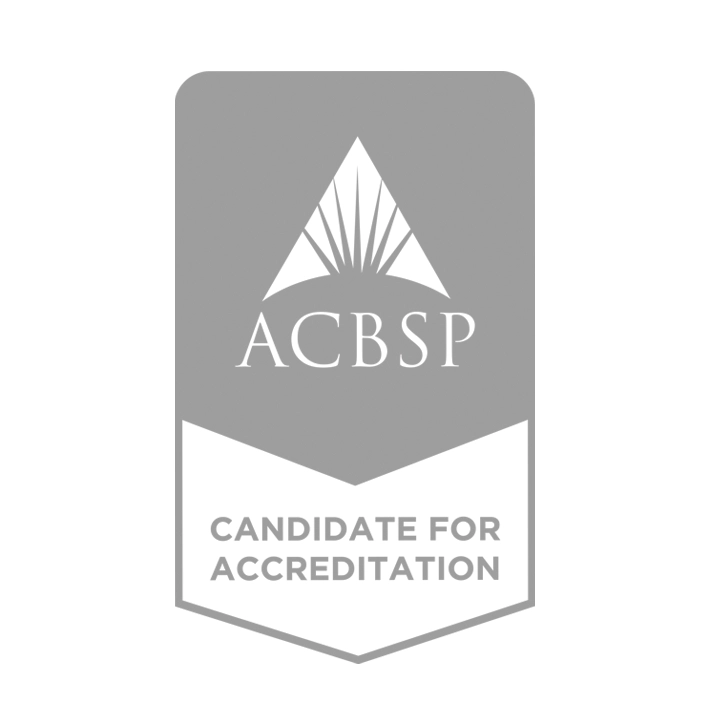

Business Management
Overview
This program provides you with the skills to make strategic decisions in the fast-paced world of business. By developing your critical thinking and communication, you'll be well-prepared to take on management positions in a wide range of industries.
Looking for a well-rounded education focused on effective business management? The Business Management program is designed for university and college graduates who are eager to expand their management knowledge and skills. Using a student-centred, practical approach to learning, students work with professors with real world business experience to develop the tools needed for success in a Canadian or international business environment.
The curriculum has a broad focus designed to develop the fundamental skills necessary to manage human, physical and financial resources to meet an organization's strategic goals. Students will learn the essential aspects of business including marketing, sales, accounting, finance, human resources management and operations management. Through hands-on learning approaches, students will graduate with the communication skills, confidence and independent learning abilities needed to be successful in today's business world.
The work term that ends the program gives students the opportunity to gain valuable work experience that will help find permanent employment after graduation.
Sarnia - A Great Place to Study
Immerse yourself in Canadian culture in Sarnia's small community that cares.
Enjoy the beautiful city on the shores of Lake Huron, live affordably, and let us help you succeed in your future aspirations.
Admission Requirements
- University degree, college diploma, or advanced diploma or equivalent
The admissions process is competitive and meeting the minimum academic requirements does not guarantee admission.
Lambton College reserves the right to alter information including admission requirements and to cancel a program or course at any time; to change the program curriculum as necessary to meet current competencies or changes in the job market; to change the pathways to third-party certification bodies; or to withdraw an offer of admission both prior to and after its acceptance by an applicant or student because of insufficient applications or registrations or over-acceptance of offers of admission. In the event Lambton College exercises such a right, Lambton College's sole liability will be the return of monies paid by the applicant or student to Lambton College.English Language Requirements
- IELTS of 6.0
- or -
- TOEFL iBT 69
- or -
- Passed Lambton Institute of English placement test
Meeting the minimum English requirements does not guarantee admission. Students with higher English proficiency scores will receive priority in the admission assessment process.
Costs
- Term 1 $7,881.43
- Term 2 $7,095.51
- Term 3 $7,795.51
- Term 4 $0.00
Total Cost of Program
Tuition fees are estimates and are subject to change each academic year. Fees do not include books (unless specifically noted), supplies or living costs.
Lambton College reserves the right to alter information including admission requirements and to cancel at any time a program or course; to change the location and/or term in which a program or course is offered; to change the program curriculum as necessary to meet current competencies or changes in the job market; to change the pathways third-party certification bodies; or to withdraw an offer of admission both prior to and after its acceptance by an applicant or student because of insufficient applications or registrations or over-acceptance of offers of admission. In the event Lambton College exercises such a right, Lambton College’s sole liability will be the return of monies paid by the applicant or student to Lambton College.
Additional Fees
WIL Project Fees
Students who are not successful in securing a co-op or fail to meet the co-op requirements will need to register in CPL-5559 WIL Project.
There is an additional fee of $2,100 for each student enrolled in the WIL Project course.
Textbooks
The anticipated cost for textbooks in this program is approximately $500 - $700 per term. This amount accounts for both mandatory textbook costs (included in tuition fees) as well as textbook fees not included in your tuition fee amount.
Important Dates, Deadline & Late Fees
For additional information on registration dates, deadlines and late fees please refer to Registration Dates and Deadlines.
Student Fees
A student services fee is included in your tuition.
Health Insurance Coverage
Emergency medical insurance is mandatory for all international students at Lambton College. This includes students who are full-time and part-time and who are on a co-op. This insurance is provided by GuardMe - a third party insurance provider.
See Insurance Costs & DetailsTechnology Requirements
In order to keep pace with the requirements of each and every course in your program, Lambton College requires that each student have access to a laptop while studying at our college.
Accreditation Council for Business Schools & Programs (ACBSP)
This program has achieved ACBSP Candidacy status which means that this program aligns with global business standards and prepares you for success in your career.
ACBSP Candidacy signifies our commitment to high quality, industry relevant education, ensuring you gain not just knowledge but a competitive edge in the business world.

Courses
Human Resources Management
Effective Human Resources Management (HRM) is critical to the success of organizations today. This course will provide an overview of the key concepts of HR management and will include some history and theory of the HR function and important terminology. It will introduce students to the core competencies of effective HR practitioners and allow for self-assessment against these competencies. We will be discussing core HR practice areas such as Strategic Planning, HR Planning, HR Administration, Talent Management, Training Learning and Development, Performance Assessment, Total Rewards (including Compensation and Benefits) Employee and Labour Relations and Health and Safety in the workplace. In addition, the course looks at the legal environment for effective HR management, and the role of HRM in mergers and acquisitions and organizational change management.
Applications of Marketing Concepts
This course uses a case-study approach to introduce students to foundational concepts in the ever-changing marketing environment. Students analyze and solve common marketing challenges through the evaluation of real-world marketing case studies. Students examine the current marketing environment including concepts such as environmental scanning, segmentation, targeting and positioning, and marketing research. Students deepen their understanding of the marketing mix with analysis of product development and branding, pricing, distribution, and the many types of traditional and digital promotions. In addition to case analysis, students further develop their abilities to make informed marketing decisions through simulation exercises designed to emulate real-world scenarios faced by marketing managers.
Introduction to Managerial Accounting
The managerial accounting course provides students with skills to become highly effective in environments where quick decisions are required. Students learn to use financial information to make quick strategic decisions including how to use data to evaluate the effectiveness of current operations. Learning to maximize the profitability of operations, students interpret financial statements and supporting financial data that drive decision making. Topics covered in this course include cost management, analysis of financial performance, application of pricing strategies, and budgetary planning and control for a business enterprise.
Workplace Communications Applications & Analysisi
In today's management and administration workplace, having strong computer skills is essential. This course provides students with resources and guidance to develop skills in Microsoft Office applications, focusing on three key areas: Word, Excel, and PowerPoint. While learning about these programs, students develop skills in time management, accountability, and their ability to follow direction.
Professional Communications
This course is designed for international students with diplomas or degrees. It focuses on polishing communications skills acquired through one's academic career and workplace experience. Through various business writing and speaking scenarios, students learn Canadian business practices and communication styles, incorporating inclusivity and diversity. Close attention is paid to proper incorporation of the intellectual property of others to ensure academic integrity. Students will practice organized and dynamic speaking and will strive for polished business documents.
Principles of Economics
This course is a survey of the principles which apply to our society's efforts to solve economic problems. The survey includes an examination of fundamental economic problems, economic models, the nature of the Canadian economy, employment, inflation, the role of governments in managing the economy, and the functioning of demand, supply, and firms within the market system.
Integrated Marketing Communications
In today's marketing world, there are more advertising contact points and specialized media competing for consumer's attention than ever before. To effectively break through the clutter, companies need to use a well-coordinated approach to selecting different promotional methods to differentiate their communication and present a consistent message to target audiences. This course introduces students to the concept of integrated marketing communications (IMC); a strategic planning process that helps companies identify the most appropriate and effective methods for communicating and building relationships with consumers. Students will learn the essential components of an IMC plan, including how to integrate advertising, sales promotions, public relations, direct marketing and digital media to maximize the impact of communications. Students will utilize this knowledge to build their own comprehensive marketing communications plan for a selected product or service.
Selling
This course is designed to provide students with an introduction to professional selling and the skills required to find success in relationship building and sales. Students are introduced to the many career alternatives available as well as the day-to-day expectations of a successful salesperson. The focus is to assist students develop their personal brand and strengthen their presentation, communication, and negotiation skills through role-playing, simulations, and applied learning exercises. Both traditional and digital prospecting methods are explored, along with the application of effective discovery, proposal creation, and problem resolution strategies, all in support of creating a customer relationship built on trust. Topics include goal setting, planning, time management, sales analytics, key performance indicator analysis, and customer relationship building. Students apply their learning in a simulated, professional business-to-business sales environment.
Business Law
In this course, students are prepared for a business environment increasingly affected by laws. They learn how laws must be understood and applied by management in the conduct of business. They also learn how to analyze a business situation from a general legal perspective. Emphasis is placed on methods of dispute resolution, contracts, torts, employment law, methods of carrying on business, sale of goods, and marketing law.
Entrepreneurial Mindset
This course introduces students, through a Canadian lens, to the development of an entrepreneurial mindset. The ability to think like an entrepreneur and act like an innovator are critical skills for success across industries and are proven tools to help distinguish individuals in the workplace. Whether applied in a start-up company, or as an employee within an existing organization (intrapreneurship), learners develop knowledge on how to navigate barriers to creating, developing, and sustaining innovative new initiatives. Topics related to the development of resilience, focus, productivity, creativity, and success are introduced to support learners in building their own entrepreneurial capacity.
Social Media Marketing
This course explores online marketing tools and tactics, such as social media, email, digital advertising and content marketing, that businesses can use to build a profitable relationship with their customers. Students engage in simulated social media, email and digital advertising campaigns to gain a better understanding of how to use these tools in their marketing efforts. Along with learning about digital and social media marketing, students learn general principles of marketing that are key for every business, regardless of industry or size: identifying who your customers are; understanding what needs they have that you are uniquely able to serve; creating a brand voice that speaks to them; identifying who your competitors are; deciding how to differentiate your offering from theirs; and creating a plan for engaging customers across social media and digital advertising platforms.
Consumer Behaviour
Consumer behaviour is one of the most exciting areas in the study of marketing. Every day, a variety of media inform, persuade, and influence our purchase decision. These media compete with other stimuli for our attention and our hard-earned money. In studying consumer behaviour, students learn how marketers identify and work with these sources of influence, how we think and how we process information. Students also learn how their relationships with others and their dreams and aspirations help shape their product choices and purchase decisions. The evolving topic of sustainable consumption is discussed as brand accountability, legislation and governance continue to set the direction for more purposeful practices.
Job Search & Success
This course provides student with skills and knowledge to help support their career search and succeed in the workplace. Students align their personal skill set and goals to guide them on their career paths. They will learn how to effectively conduct a job search, build a professional and well-tailored resume and cover letter, and develop and practice interview techniques. Students will also develop their personal brand to help support effective career networking and aid in their job search. Teamwork and collaboration in the workplace are also discussed. Self-reflection is used to inspire insight and support their professional career journey.
Leadership in Change Management
One of the few constants in today's competitive business environment is change. Change leaders must have knowledge of what drives successful change, what challenges successful change, the options available, the ethical issues associated with change, and understand organizational theory and behaviour and its impact. Leaders are facing change as it relates to sustainability, climate change and the implications for business in the ESG realm. The environment, social-justice, diversity, and inclusion are all considerations and present organizations with both opportunities and challenges as we look with urgency to our collective futures. Effective leaders must identify the correct approach to leading transition within an organization, utilize skills required to lead in chaotic and fast-paced environments, optimize organizational structures, analyze, and assess change effectiveness, and ready their organizations to thrive. Through case study, readings, teamwork and class discussion, this course explores these knowledge areas and provides opportunity to practice and develop leadership skills relevant for successful change management.
Financial Analysis & Budgeting
This course is an introduction to the essentials of financial management with a view for wealth maximization of a business enterprise. Topics covered in this course include the following: analysis of financial performance, cost-volume-profit analysis, financing alternatives and costs, management of working capital, budgeting, and capital investment decisions.
Operations Management
Operations and supply chain management have evolved into one of today's most important business disciplines. In the dynamic world of manufacturing and service delivery, designing systems more effectively and efficiently is a key source of competitive advantage. This course introduces business students to foundational concepts and practical methods used in the design and operations of manufacturing and service firms. Students explore strategic decisions related to how firms compete including operations strategy, supply chain design, process and facility design, and capacity planning. Students also learn tactical and day-to-day strategies for inventory management, forecasting, resource scheduling, quality control, project management, and lean operating systems.
Alternative Dispute Resolution
This course introduces students to methods of dealing with conflict in the workplace. Students will examine different strategies for resolving workplace conflict, including the importance of effective communication. In addition, students will study various negotiation and mediation techniques.
Retailing
This course provides students with a solid understanding of the complexity of operating a retail business in Canada and serves as a good foundation for a career in retailing or other industries that support the retail supply chain. The course provides an overview of the retail industry in Canada and its importance in the Canadian economy. Trends impacting the dynamic retail environment and the changing retail customer are investigated with an emphasis placed on sustainability issues in retail operations. Students evaluate market opportunities, location considerations, store design and layout decisions to consider when planning a store. Students are introduced to retail financial analysis and the operational decision functions of buying, managing, and pricing merchandise.
Secondary Market Research
This course introduces students to the constantly expanding world of secondary data research. This is the first of two research courses designed to develop research techniques and skills that meet the needs of today's business. Students develop their research technology skills by learning how to locate, evaluate, and qualify high-quality data. Students strengthen their ability critically interpret and evaluate the data collected and suggest potential trends and implications. An important focus of the course is learning to create appropriate tables, graphs, and infographics that aid in understanding and visualizing the data. Through a series of research assignments, students learn to craft high-quality written reports, presentations and infographics with accurate references and citations. Throughout the course, students are exposed to a wide variety of government, business, and economic information expanding their knowledge of the dynamic business environment.
Co-op Work Term
Co-operative education provides students with the opportunity to apply classroom learning to the workplace, undertake career sampling and gain valuable work experience that may assist students in leveraging employment after graduation.
WIL Project
Work Integrated Learning (WIL) Project is aimed at enriching students by connecting different program areas of study, cutting across subject-matter lines, and emphasizing unifying concepts. The focus of the WIL Project is to make connections between study and industry by engaging students in relevant and meaningful activities that are connected to and practiced within the professional workplace. WIL Project allows students to enhance and strengthen their employability prospects post-graduation by fine tuning skills and knowledge and meeting the expectations of today's employers. Students are required to attend the scheduled shifts in the WIL office, reporting to the WIL Supervisor. Weekly real-world challenges are presented in the WIL office, designed by industry professionals. In addition to the weekly assigned deliverables, students are also offered professional development sessions, and exposed to industry guest speakers, enhancing their opportunity to develop their professional network.
Co-op Eligibility & WIL Project Fee
In order to be eligible to secure an approved full-time co-op work term (CPL-1049), students must have a GPA of 2.8 or greater and complete all the co-op eligibility requirements. Failing to do so will require students to enroll in CPL-5559 WIL Project at an additional cost.
Contact
Centre for Global Engagement
LAMBTON COLLEGE SARNIA
1457 London Road
Sarnia ON N7S 6K4
After Graduation
Employment Opportunities

Graduates will be prepared to work in numerous business sectors, from entry-level work to movement into management. Depending on the unique qualifications of the graduates, these could include employment in Canadian and international locations in the areas of manufacturing, market research, retail, logistics, banking, insurance, and sales. Some graduates may opt to become entrepreneurs and develop their own business.
Looking for Support After Graduation?
The International Graduate Services & Support Centre (GSSC) is a place dedicated to assisting International alumni as they seek employment and settle into Canadian life following graduation.
Post-Graduate Employment
International students who successfully complete their programs of study at Lambton College may be eligible to apply for a Post-Graduation Work Permit (PGWP) Program. This program allows students to gain valuable Canadian work experience.
A work permit under the PGWP may be issued for the length of the study program, up to a maximum of three years. A post-graduation work permit cannot be valid for longer than the student's study program, and the study program must be a minimum of eight months in length. The length and approval of the PGWP is determined solely by Immigration, Refugees and Citizenship Canada (IRCC).
Students must meet the eligibility requirements to apply for a post-graduation work permit.
Immigration Regulations & Changes
Immigration regulations are legislated by the Federal Government of Canada and are subject to change at any time without notice. Students are responsible for ensuring that they are in compliance with all Immigration, Refugees and Citizenship Canada regulations at all times during their studies and while in Canada. Lambton College staff are not authorized to provide advice or guidance on immigration-related matters. Prospective applicants and current students should consult the Immigration, Refugees and Citizenship Canada website or call the IRCC Call Centre at 1-888-242-2100 to answer or clarify any immigration-related questions or information.
Co-op
About Co-op
Students in this program have the opportunity to gain valuable work experience by applying classroom learning during co-op experiences.
Learn more about co-op terms and the roles and responsibilities of students and co-op advisors.
Co-op Success Story
Camille Pauline Santos came to Canada with her husband and three kids. She studied at Lambton College and completed the Business Management program in 2023. While completing the program, she was given a co-op with RBC and upon graduating, was hired full-time as a Banking Advisor Intern. This position allows her the flexibility and convenience to work while raising her family in the Sarnia community.

"Our family loves to go the beach and the lake and having those things accessible to us makes it a game
changer. Its a small community and a great place to raise families like ours," said Santos about why she chose to stay in Sarnia.
Program Capabilities
Upon graduation, students should be capable of the following workplace skills:
- Interpret and record business transactions, and prepare basic financial statements.
- Integrate knowledge of capital investments, credit planning, and finance into relevant aspects of work
- Utilize the concepts and business applications of computer information systems
- Apply the concepts of human resource management and organizational behaviour to establish and maintain effective working relationships
- Analyze a marketing situation and develop appropriate advertising recommendations and sales promotion strategies
- Compare and contrast various pricing strategies and their effects on sales and profits
- Prepare and deliver a sales presentation
- Utilize effective oral and written communications in all aspects of work completed
- Apply effective interpersonal skills
- Articulate various economic principles and their relationship to business
- Complete all work according to relevant and accepted business ethics and within the scope of corporate responsibility
- Apply decision-making and problem solving techniques in formulating business policy
- Articulate the unique challenges and opportunities presented by entrepreneurial ventures
- Complete all work in a manner consistent with law and professional standards, practices and protocol
More Information
Student Responsibilities
- Course and program delivery schedules are proposed and subject to change for each intake.
- Students are required to bring their own laptop with wireless capability.
- Students are advised to bring an official copy of their most recent police clearance, driver's license, and vaccination record from their home country.

Accreditation Council for Business Schools & Programs (ACBSP)
This program has achieved ACBSP Candidacy status which means that this program aligns with global business standards and prepares you for success in your career.
ACBSP Candidacy signifies our commitment to high quality, industry relevant education, ensuring you gain not just knowledge but a competitive edge in the business world.

Technology Requirements
It is recommended that students purchase a laptop with a Windows operating system.
Internet Speed Requirements
For best performance for students learning remotely, an internet connection with a minimum of 40 Mbps download and 10 Mbps upload speed is recommended in order to effectively use video conferencing and remote lecture delivery software as well as, other online resources remotely. Due to the large area over which students may be dispersed, we are unable to recommend a specific provider, so you will need to inquire around your area to find one that best suits your needs.
Minimum Laptop Requirements
In order to access the internet and virtually-delivered software and courseware, student laptops should include the following at a minimum. By meeting the following specifications, students will be equipped to access software and courseware on their laptop through the internet:
- Intel i5 8th Gen Processor or equivalent
- 16 GB of RAM (with a minimum of 8 GB)
- 100 GB HDD or more
- HD Graphics
- Webcam with a microphone
- Wireless 802.11n/ac 5ghz capable
- Windows Operating System (Windows 11)
Please note that Chromebooks and MacBooks may not support all software required for your program; students should verify compatibility with their professors.
Software
To ensure students are getting the most our of their classroom experience, some software will be required.
Lambton College has made this software easily accessible online. Students can leverage our Microsoft Office 365 software packages and services. In addition, much of the software you require for your courses will be available on demand for use on any device - on or off campus.